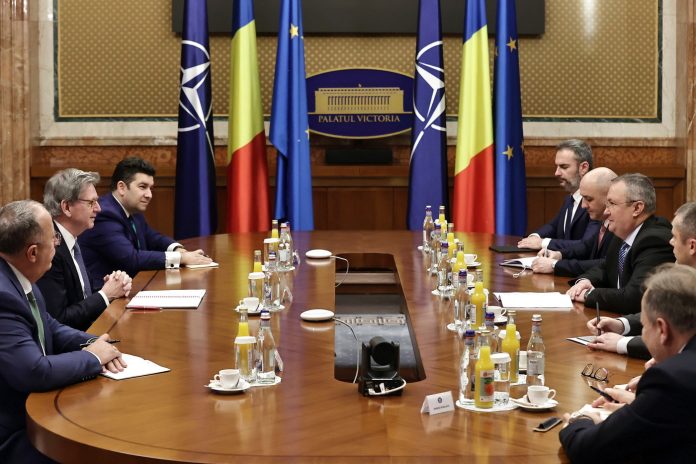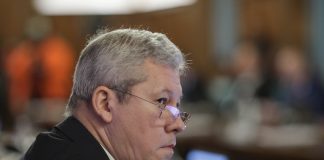Prime minister Nicolae Ciuca met, on Monday, at the Victoria Palace of Government, with the executive director of the International Monetary Fund, Paul Hilbers, with the evolution of Romania’s economy in the context of the crises and challenges of the recent years being analysed during the discussions, Agerpres informs.
According to a Government press release, the head of the Executive showed that our country has managed to achieve one of the most dynamic development rates at the European level, recording, in the last 20 years, an eight-fold increase in the economy. Romania went on to consolidate these results last year, included, when the economic growth of 49 billion euros represented the equivalent of the entire GDP of 2002, the release states.
„Prime minister Ciuca presented the positive impact of last year’s unprecedented increases, both in terms of the absorption of European money, as well as from the perspective of foreign direct investments. The political stability generated by the current governing coalition and the predictability of fiscal policies represent two important assets, in the context of the foreign investors’ increasing interest in Romania,” the Government said.
The prime minister gave assurances regarding the responsibility assumed from the perspective of fiscal policies, stressing that the need to control the effects of inflation and to decrease its value in the next period is a priority that the Government pursues, harmonizing its efforts with those of the National Bank of Romania.
„The government is taking all the necessary measures to consolidate and develop the business sector, both in terms of companies with Romanian capital, as well as in the relationship with foreign investors. The consolidation of the middle class will ensure the maintenance of the pace of economic development and the solidity of the Romanian economy. We have good growth prospects, and the decisions we make enjoy political stability,” declared the prime minister.
At the same time, Nicolae Ciuca thanked the IMF for the constant support provided during our country’s evolution in the transition from the planned economy of the communist period to the Western model, based on the free market, in compliance with the democratic values.
The importance of our country’s accession to the OECD was mentioned, as a national objective, after joining NATO and the EU, with an emphasis on the benefits for the business and investment environment.
The IMF Executive Director Paul Hilbers noted the strengthening of Romania’s reputation at the European and international level, through the economic performance achieved, the reforms undertaken, including in areas such as environmental policies, digitalization or the application of standards in the more developed states.
The IMF official thanked Romania for the support offered to Ukraine and the Ukrainian refugees, as well as to the Republic of Moldova.
In the same context, prime minister Ciuca provided details about the aid offered to over 3.4 million Ukrainian refugees who crossed our country’s borders because of the Russian military aggression, 110,000 of them choosing to stay in Romania.
The prime minister asked for greater support for the economy of the Republic of Moldova, affected by the military aggression against Ukraine, presenting the measures our country has taken to ensure electricity, natural gas, wood for the winter period, as well as assistance in the process of European integration.
Agerpres




